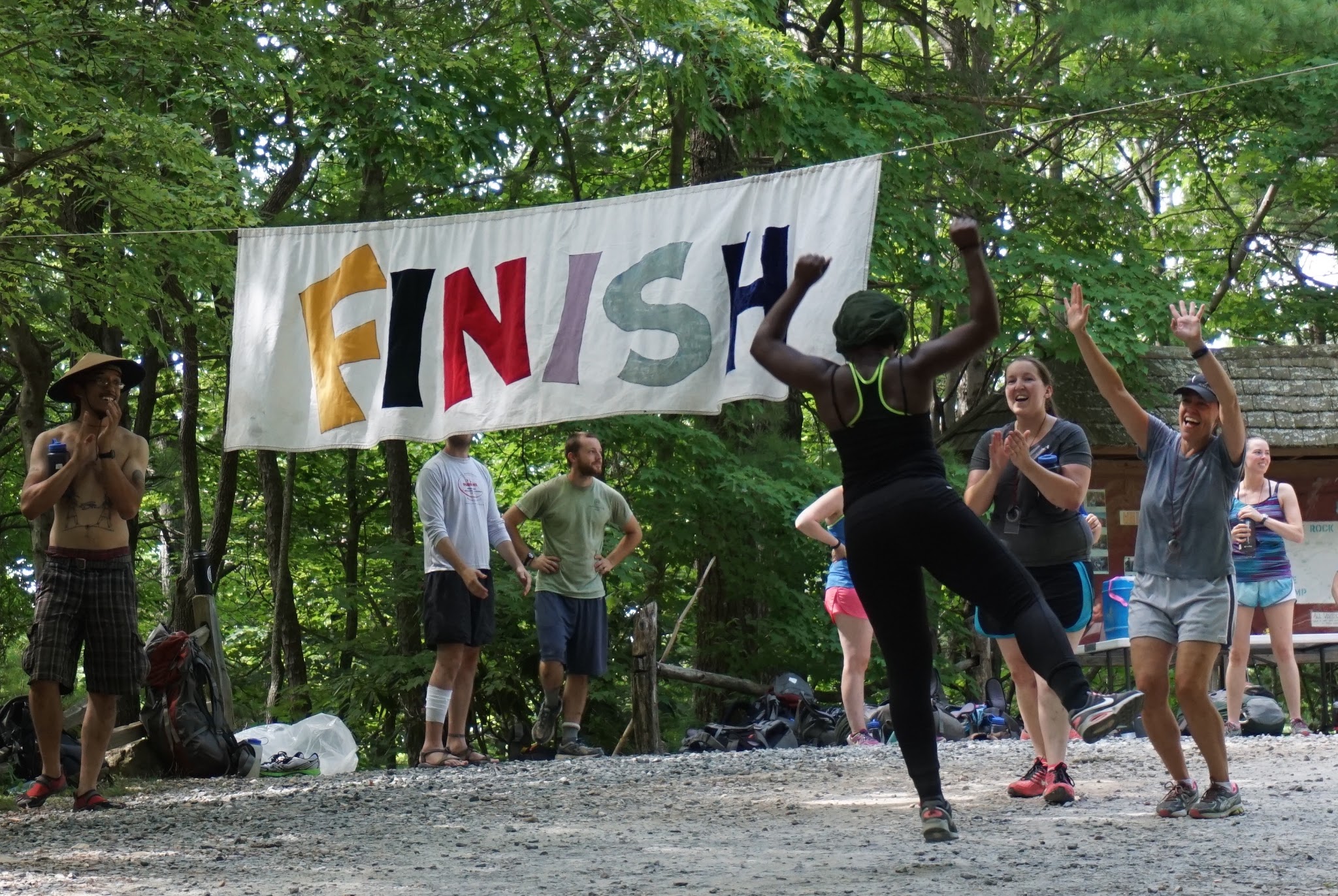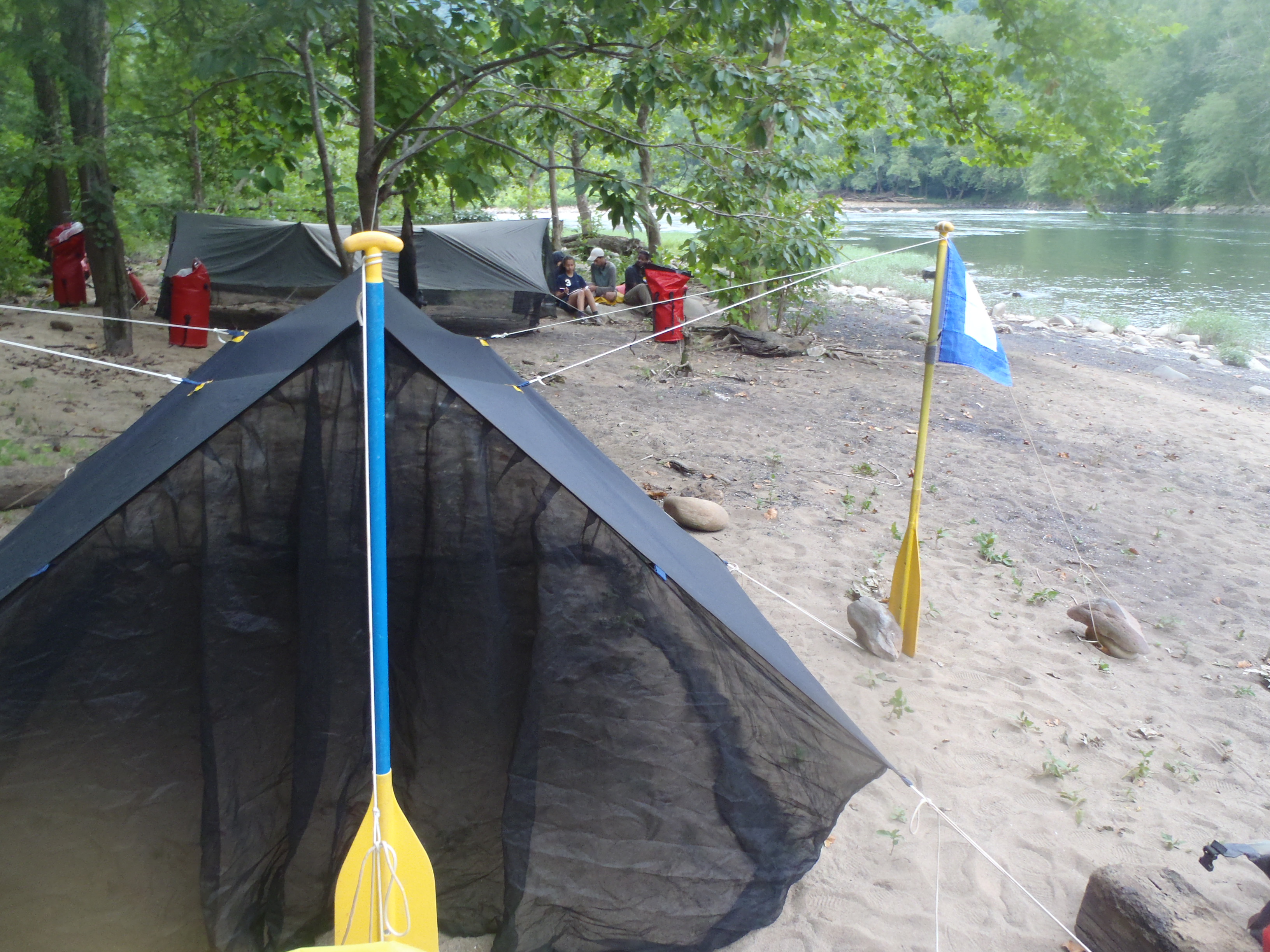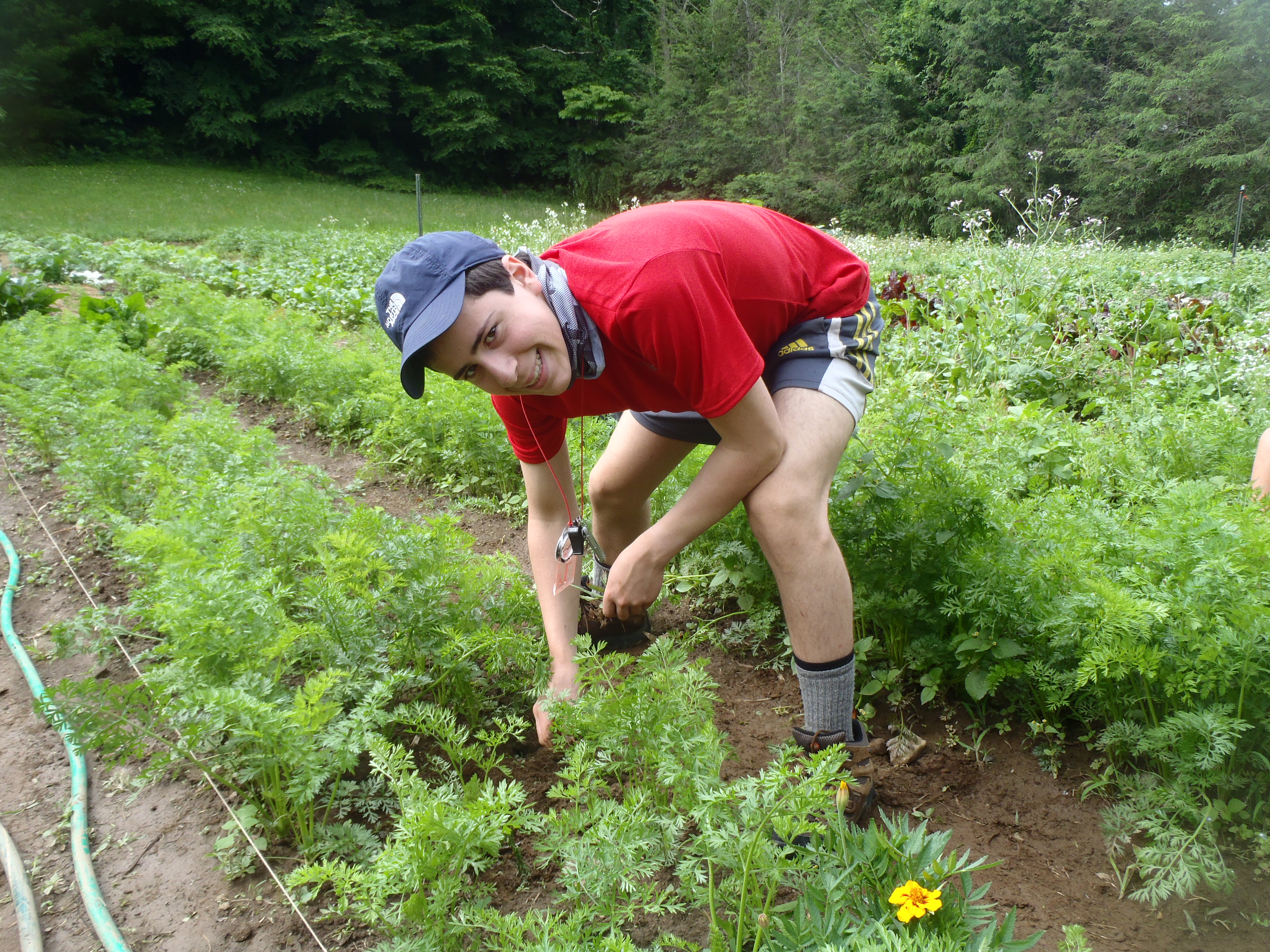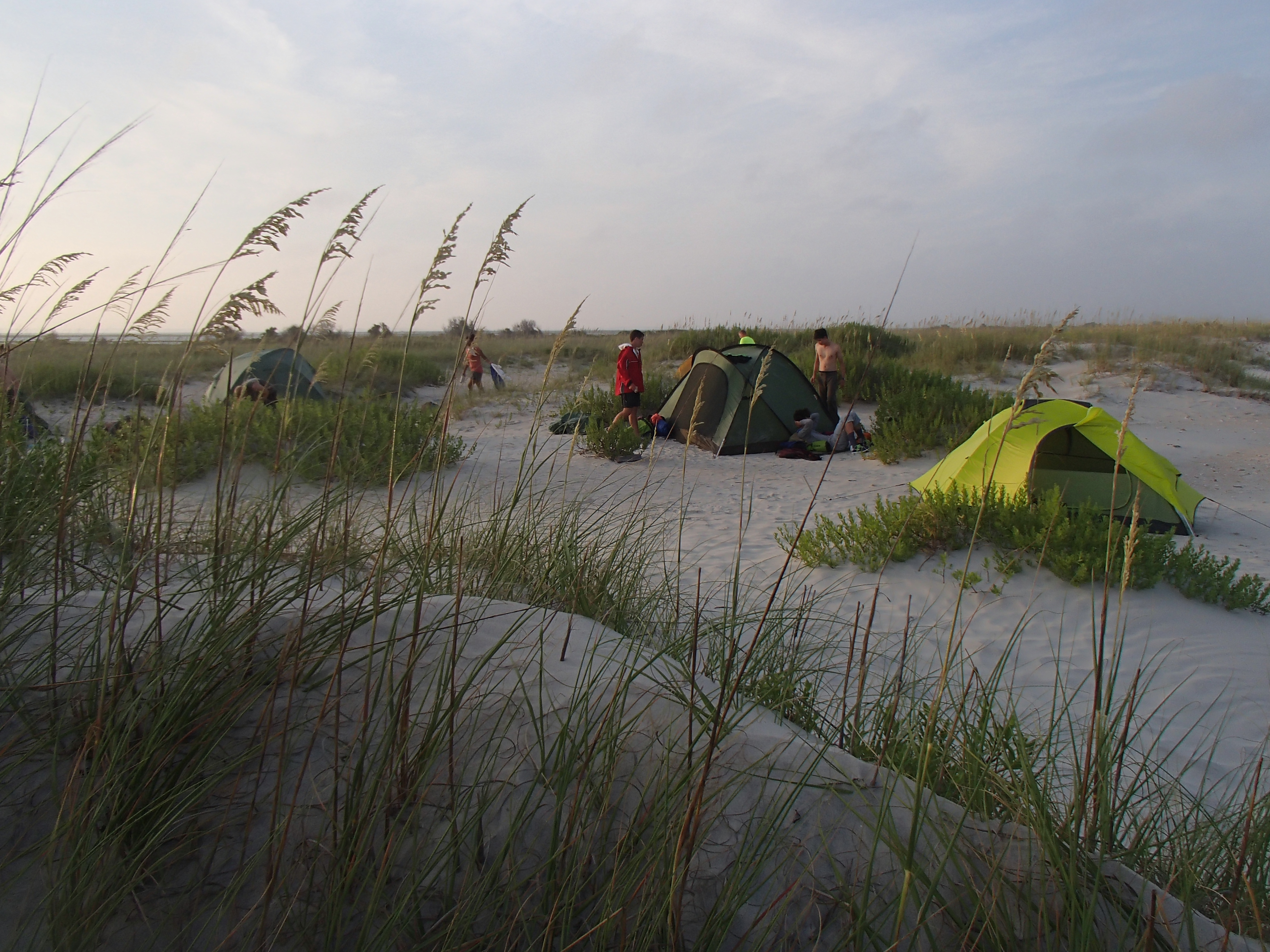Course Number
NTC7-061
Date
June 08, 2020 - July 07, 2020
BLUE RIDGE MOUNTAINS, NC
Because the Appalachians were once one of the largest mountain ranges in the world they have many different geologic landforms, climates and soils. This long evolutionary history and temperate climate create an area which is teeming with life. Participants can expect to share the wilderness with over 700 different kinds of trees, more than 50 types of mammals, 150 different types of birds and about 40 species of amphibians.
This course area is situated within a million acres of national forests, federally-protected wilderness areas, and other public lands. Its diverse landscapes have been featured in many motion pictures, including The Hunger Games and The Last of the Mohicans. <Click to learn more about this course area.>
OUTER BANKS, NC
Dotted with lighthouses, the Outer Banks are a 200-mile-long string of narrow barrier islands beginning in the southeastern corner of Virginia Beach and going down the North Carolina coastline. The Core and Pamlico Sounds, which are along the Cape Lookout National Seashore, are where most of North Carolina Outward Bound School’s sea kayaking courses take place. This wilderness area remains minimally developed and offers the largest expanse of primal barrier island ecology available on the east coast. There are no residents on this 56-mile long section, which runs from Ocracoke Inlet in the northeast to Beaufort Inlet on the southeast. <Click to learn more about this course area.>
FINAL CHALLENGE EVENT
At the end of your course, you will participate in a personal challenge event. This is a great time to see how much your physical fitness and endurance have improved since you began your course. This event will be a running activity. It is not a race. Your instructors set a certain route for your crew and you complete the route at a level that will challenge you the most.

SERVICE
Service will be a continuous theme throughout your course. The ethic of service is practiced through Leave No Trace camping techniques, reaching out with compassion to your fellow crewmates and working together as a team to overcome the challenges of Outward Bound.
On your course, the ethic of service is practiced in greater depth and often includes a service project. Projects range from campsite restoration and maintaining hiking trails in the wilderness to supporting the surrounding communities by assisting families in need, sharing outdoor activities with disadvantaged children or helping in local wildlife restoration centers. Service projects typically last 6-8 hours. Alert your instructor AT COURSE START if you need written verification or documentation of service project hours.
SOLO
Solo typically occurs more than halfway through your course and may last between 36-48 hours. Your instructors will assign each participant an individual campsite within a designated area. Your instructors will teach you procedures to follow during solo and monitor you during this experience. You will know the location of your instructors’ campsite should you need to contact them; otherwise it is essential that you remain in your designated area. If your course has an overnight solo you will have your clothing, food and water. In addition, you will have Outward Bound issued gear: including rain gear, shelter, sleeping bag, compass and whistle. You will not be physically active during solo, as solo is a time for rest, recharge and reflection. Solo is also a good time to write in the journals we provide. If you have questions or concerns, please discuss with your Student Services Representative or your instructors.
Phase 1 - Blue Ridge Mountains Backpacking, Rock Climbing and Whitewater Canoeing
BACKPACKING
Specifics: During your course, you will be backpacking approximately nine to 12 days.
Since your crew’s navigation depends on individual and group decision making, your crew could make some navigational errors along the way. You may hike 12 to 15 hours in one day to reach your destination or you could go three miles uphill one day and 12 miles over varied terrain the next day. The backpacks can weigh 55+ pounds. Remember, PHYSICAL PREPARATION IS KEY!
ROCK CLIMBING
Specifics: Weather permitting, you may spend up to four days rock climbing and rappelling.
With a focus on the practice of safety, your lessons will start with the basics, such as working with ropes and learning to tie knots used for climbing and rappelling. You will progress to:
- Top-Rope climbing or “top-roping”: A style of rock climbing in which a rope runs from a belayer at the foot of a route through one or more carabineers connected to an anchor system at the top of the route and back down to the climber. The rope is attached to the climber by means of a harness
- Rappelling: A means of controlled descent to lower yourself down a cliff, rock face or some other high location.
You may progress to:
- Multi-Pitch Climbing: The ascent of climbing routes with one or more stops at a belay station. Each section of climbing between stops at the belay stations is called a pitch. The lead climber ascends the pitch, placing gear and stopping to anchor themselves to the belay station. Your multi-pitch climb may have up to five pitches and may be graded 5.4 to 5.9. Depending on weather and group dynamics, your crew may have an opportunity to experience a high ropes course.
WHITEWATER CANOEING
Specifics: Weather permitting, you may spend up to four days canoeing on the French Broad or Tuckaseegee Rivers.
Occasionally we may also use the Chattooga, New and Nantahala Rivers. You will be using tandem (two person) canoes. Some of the topics you may cover during this portion of the course include:
- Basic water safety and rescue techniques.
- Identification and use of paddling equipment.
- How to work with your paddling partner to successfully negotiate class I - III rapids.
- Advanced skills including flatwater and whitewater paddling strokes and maneuvers.
It will be necessary for you and your crewmates to perform a rapid swim assessment; as well as a flip and swim (or canoe capsize) assessment in the river. This activity is closely monitored by your instructors and river specialists. It is critical for us to determine your whitewater paddling comfort as you and your crew maneuver challenging rapids. Even if you are a non-swimmer or weak swimmer, you will still participate in this safety assessment. All students will be wearing safety helmets and personal floatation devices (PFDs) during the assessment. Helmets and personal floatation devices (PFDs) are required apparel anytime students are on the water.
Phase 2: Outer Banks Sea Kayaking
You can expect to spend a good deal of time each day in kayaks. We use both single and tandem kayaks. Each student will have an opportunity to spend time in both vessels. Depending on the wind and weather, the level of difficulty will most likely vary day to day. You and your crewmates will practice:
- marine expedition risk assessment and management.
- marine route planning and navigation.
- paddle strokes and techniques for kayak propulsion and steering.
- kayak-based assisted rescues and self-rescues.
- sea kayak expedition equipment use, care and maintenance.
It will be necessary for you and your crewmates to perform a swim assessment; as well as a flip and swim assessment as practice for paddling and self-rescue. This activity is closely monitored by your instructors. It is critical for us to determine your paddling comfort as you and your crew explore the islands. Even if you are a non-swimmer or weak swimmer, you will still participate in this safety assessment. All students will be wearing personal floatation devices (PFDs) during the assessment. Personal floatation devices (PFDs) are required apparel anytime students are on the water.
Here are some books that we encourage you to read as you plan for your course:
- The Outward Bound Wilderness First-Aid Handbook by Jeff Isaac
- Leave No Trace: A Practical Guide to the New Wilderness Ethic by Annette McGivney
- Knots & Ropes for Climbers by Duane Raleigh and Mike Clelland
- The Outward Bound Backpacker's Handbook by Glenn Randall
- The Outward Bound Map & Compass Handbook by Glenn Randall
Here are some books that we encourage you to read as you plan for your course:
- The Outward Bound Wilderness First-Aid Handbook by Jeff Isaac
- Leave No Trace: A Practical Guide to the New Wilderness Ethic by Annette McGivney
- The Water is Wide by Pat Conroy
- The Edge of the Sea by Rachel Carson
- How to Read a North Carolina Beach by Orrin Pilkey
- Sea Kayaking Illustrated by John Robison
Please refer to your Applicant Portal to confirm your balance and make payment.
If you are unsure of your balance due, please call 1-800-878-5258 or email [email protected].
Please review the Application & Cancelation Policies.
If your payment is not received by the due date listed in your Application Portal, you will risk losing your position on the course and your $500 deposit.
While in the mountains, each crew will be given large tarps to set up as shelters. You will also be given a ground sheet and a foam sleeping pad to place under your sleeping bag.

While in the Outer Banks, you will be sleeping on the beach in a personal bug tent or in a multi-person tent with up to three other individuals. You will also be given a ground sheet and a foam sleeping pad to place under your sleeping bag.

